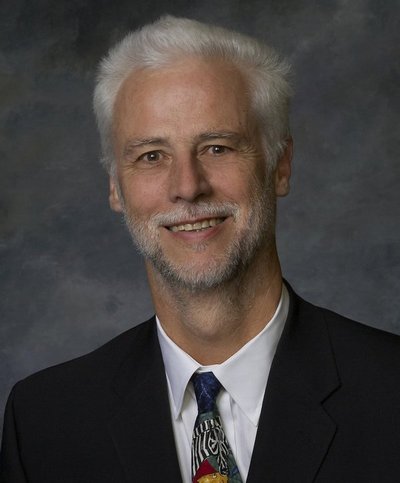May 20, 2005
Computer scientist gets presidential award for mentoring
A University of Washington theoretical computer scientist whose work includes access technology for deaf and blind people has been named a recipient of this year’s Presidential Award for Excellence in Science, Mathematics and Engineering Mentoring.
Richard Ladner, Boeing Professor of Computer Science and Engineering, is one of nine individuals from around the country who received the award at the White House this week. John Marburger, director of the Office of Science and Technology Policy for President Bush, presented the awards, and recipients had an opportunity to talk briefly with the president.
The annual award is administered by the National Science Foundation and includes a $10,000 grant for continued mentoring work and a presidential commemorative certificate.
Ladner said the recognition was rewarding. Until now, little attention has been given to scientists whose work focuses on those with disabilities.
“I think it’s a statement by the NSF that persons with disabilities really matter and they should be involved in the enterprises of science, mathematics and engineering.”
But, he added, the honor was also inspiring.
“When you get an award like this, it’s not an invitation to rest on your laurels. It’s actually a challenge to do more,” Ladner said. “You feel like Popeye — you’ve got your spinach, you have a little extra muscle in your arms and you’re motivated. And that’s the expectation, I think. Even the NSF people asked us what we were going to leverage this into.”
Ladner’s win makes two in a row for UW Engineering.
Last year, Denice Denton, then dean of the college, won for work she has done to make science and engineering curriculum more accessible to women and minority students. In addition, three programs affiliated with UW Engineering have won the award in the past — the Disabilities, Opportunities, Internetworking and Technology program was recognized in 1997, Women in Science and Engineering got the award in 1998, and the Washington Mathematics, Engineering, Science Achievement program received it in 2000.
“We in the college know the importance of Richard’s work and it is great to see him get national attention for it,” said Mani Soma, acting dean. “The fact that we had a winner last year and have had three winning programs earlier than that speaks volumes for our commitment to diversifying the engineering force so we can effectively meet the challenges of today’s global marketplace.”
Ladner’s work includes an NSF-funded Tactile Graphics Project, which seeks to devise methods of making abstract, technical information more accessible to those who are blind.
Recently, as part of that project, the 61-year-old professor led a group of undergraduate students in an effort to provide accurate, useful maps of campus for blind students and staff. The maps in use were old, outdated and had to be checked out by those who needed them because they were so few in number. At a gathering earlier this year, Ladner and the students presented blind members of the campus community with their own new maps, updated with such vital information as the location of bus stops and pedestrian bridges. Thanks to the group’s work, changes can be made via computer and new maps printed in a matter of minutes for a minimal cost.
###
For more information, contact Ladner at (206) 543-9347 or ladner@cs.washington.edu. The White House contact is Bob Hopkins, (202) 456-6098 or rhopkins@ostp.eop.gov and the NSF contact is Bill Noxon, (703) 292-8070 or wnoxon@nsf.gov.
More information about Ladner’s work can be found on his Web page at http://www.cs.washington.edu/homes/ladner/



